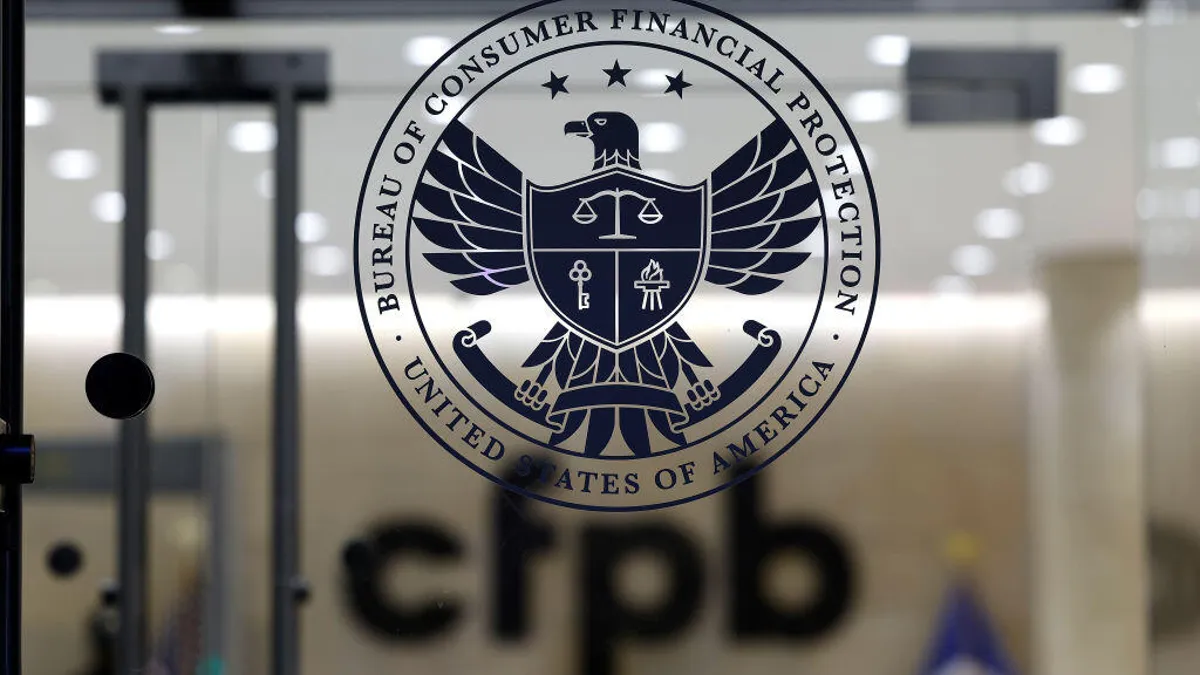The Consumer Financial Protection Bureau (CFPB) is in a state of significant turmoil as of April 2025.
Since Donald Trump returned to office in January, the administration has moved quickly to halt the agency’s activities.
The newly appointed acting director, Russell Vought, ordered all staff to cease supervision and examination efforts, refrain from work-related tasks, and stay away from the office.
This effectively rendered the CFPB non-operational, with its headquarters closed and regulatory actions suspended.

CFPB’s Downsizing and Staff Reductions
In a drastic move, the administration initiated a reduction-in-force, cutting nearly 90% of the agency’s staff—approximately 1,500 employees—leaving only around 200 remaining.
Employees were notified of their termination, and their access to agency systems was revoked. The agency’s mission was also narrowed, with a stated plan to shift enforcement and supervision responsibilities to the states, and to focus primarily on mortgage-related issues while deprioritizing matters such as medical debt, student loans, and digital payments.
Ongoing Legal Challenges and Court Intervention
The Trump administration’s attempt to dismantle the CFPB has faced judicial intervention. A federal judge issued a preliminary injunction blocking the administration from proceeding with the dismantling, ruling that the actions taken were “completely in violation of law.”
The court ordered the reinstatement of terminated employees, restoration of access to agency systems, and a resumption of the CFPB’s statutory responsibilities, pending further legal review
The judge emphasized that eliminating the agency before a legal decision could cause irreparable harm.
Why the Trump Administration targeted the CFPB
The CFPB was created under President Obama in response to the 2008 financial crisis, and its existence has been a point of partisan contention since its founding.
Republican lawmakers and the Trump administration have repeatedly argued for a smaller federal footprint in financial regulation and have viewed the CFPB as an example of regulatory overreach.
More specifically, conservatives and business interests argue that the agency is overly aggressive, lacks accountability, and imposes burdensome regulations on the financial industry.
But I believe the heart of the matter rests in the success of CFPB’s enforcement actions.
CFPB enforcement actions have benefited consumers
As of January 2025:
- $19.7 billion in consumer relief: Approximate monetary compensation, principal reductions, canceled debts, and other consumer relief ordered.
- 195 million people eligible for relief: Estimated consumers or consumer accounts eligible to receive relief.
- $5 billion in civil money penalties: Approximate civil money penalties ordered.
The Consumer Financial Protection Bureau stands out as one of the most effective government agencies dedicated to safeguarding consumers’ interests.
CFPB alternatives for consumer complaints
Consumers are not entirely without recourse. Multiple agencies serve as alternatives to the Consumer Financial Protection Bureau, providing assistance to consumers in need:
Where to File a Complaint
- Federal Trade Commission (FTC): The FTC enforces the FDCPA and accepts complaints about debt collectors. You can file a complaint online through the FTC’s website
- State Attorney General’s Office: Most states have consumer protection units or divisions that investigate complaints against debt collectors. State agencies can enforce both state and federal debt collection laws and often provide complaint forms or hotlines for consumers. Find your state’s attorney general here.
- Better Business Bureau (BBB): While not a government agency, the BBB can help mediate disputes between consumers and debt collectors
- Licensing Authority: In some states, debt collectors must be licensed. Complaints can sometimes be filed with the state agency that oversees debt collection licensing
- Direct Lawsuit: Consumers can sue a debt collector in state or federal court for FDCPA violations. Lawsuits must be filed within one year of the violation. If successful, consumers may be awarded damages and attorney’s fees, even if the debt is still owed
When filing a complaint, include as much detail as possible—names, dates, copies of communications, and a description of the violation.

















